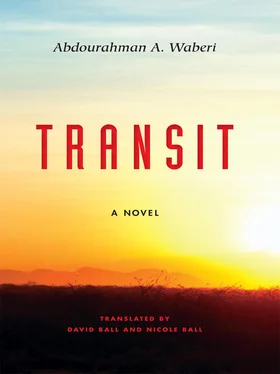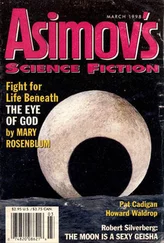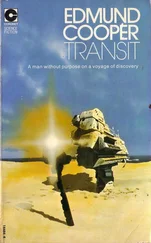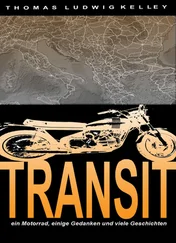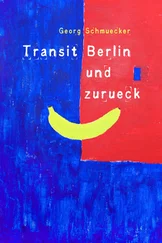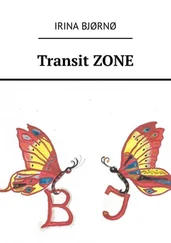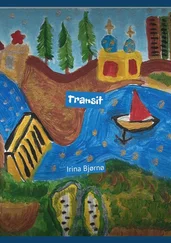Avoid talking, talking too much; avoid attracting attention, like poor Ahmed Chehem, who died choked by his own chatter, his own words tumbling down his throat like so many stones carried away by the force of the torrent. He had a voice that did not come from the throat but from further away, from deeper, from the depths of his gullet; you might have thought he had a radio transmitter hidden deep inside his belly, mixed in with his sticky guts, set into the slime of intestinal vegetation. A broken voice, silenced for centuries and centuries. The sounds, the words, the ideas that came out of his mouth were from the other end of the world. They spoke of the exile of the sun, the terrors that men feel at the threshold of day. A jumble of dreams that hardly brush ordinary people's minds. Ahmed Chehem, who died just before the land of milk and honey of his dreams, after surviving the worst tortures of the thugs of President Egueh. Poor man! May God have mercy on his soul. Allah arhamu!
In between two silent readings, uncertainty. Why did everything happen so fast? Impossible to recapitulate the very last steps in one's fall. True, there was a yesterday full of both sun and fog, a “before” that I wouldn't renounce for anything in the world, and a present, right here, whose blurry progression is something like a snail's. The future is not obligatory; tomorrow we'll see about the future, inshallah. Waiting, still. Here we are, about to be propelled into serious cities, their dark alleys, their gray, aggressive winters, their reception centers with cold corridors and stingy lighting, their jails with their sterile silence. Smelling of cat piss forever. A veritable Biafra of the mind and feelings. Here, the afternoons are very short. The days seem to go by dressed in a thick coat, buttoned up to the collar. And we're the lucky ones: some of our brothers are in the far north, caught in the trap of howling blizzards and banners of ice hanging from the lampposts.
Exhausted, we were like the fog trying to cross an ocean. Our lives were spinning, sucked up in the eye of an enormous cyclone, and wouldn't stop spinning and spinning. We would plug up our ears so as not to hear the creaking of our bones, the whistling of our bowels, the air holes in our hearts. A crater would suddenly gobble us into its wide-open mouth. That was our recurrent dream.
We hear that the personnel managing the reception centers of the Red Cross and the Secours Populaire 2avoid all contact with us. Can you believe it, they wash us from a distance with a hose. Aseptic masks protect their faces and rubber gloves their hands as they pass us a little splinter of soap, as if we were cankered with mold and covered with mange. The boldest of us walk out of the retention center in the night and find themselves in disaffected squats next to some railroad station or port, before the city files an eviction notice with the municipal authorities, and the zones around the trains and ports set up a heavy surveillance system with steel wire fencing and automatic doors. Every vehicle leaving these zones will be inspected from top to bottom by security guards equipped with thermal and carbonic gas detectors.
One night (or was it in broad daylight?) we left the country that existed so deeply inside us, saving what we still had — that is, our own carcass. We smelled of the grave from the outset. A country where life and death are churned in the same melting pot, where you go from eclipse to fall, your body frozen and your soul turned to stone. A country where rhythm has but two beats, and how sublime they are: warmth and humidity, light and shade, day and night. Like others, I had been a victim, according to the expression of a French journalist who was expelled as soon as he arrived, of the “coercion employed by the regime, which made sure it silenced all demands that went beyond its own sphere.” And yet I had shown nothing but silence and patience before the noise of the world. A country where retracing one's tribal genealogy was becoming more and more pressing. A country where the avenues of the capital are covered with sewer water and give off an unbearable stench that the pumps of the sun are unable to evacuate. Here, all roads lead to the prefecture. We are now serving a suspended sentence on this earth, with no promise but humiliation at the end, in the company of all the other trash of the planet, at once victims, executioners, and witnesses. You need to leave in order to return and construct something; one can only build on ruins. That is how the cross-section of such an event must be depicted.
Roissy-Charles de Gaulle Airport. Five AM. Sky milky gray. Silence in the departure hall that has seen so many departures and returns, so many separations and reunions, so many absences and presences. Cargoes of exiles, theaters of cruelty and bitterness. Muffled steps in the halls, some rustling of silk or nylon. Tick-tack of the flight attendants’ high-heeled shoes, quickening their pace. Tourists in shorts drag their flip-flops over the floor while the good Italian soles of businessmen in formal suits and closed faces slide along, powerful and assured in their progression. And there are a few of us, hunching into the bottom of our seats to get away from the viscous flow of the waves of travelers. The seats are midnight blue.
Thoughts are hammering at my temples, pounding against the walls of my skull like the backwash against a cliff. They escape in waves or in fragments. Ideas roaring in my ears; thoughts ripened under the sun of my conscience, each more haunting than the last. They bear witness to a life crenellated with catastrophes. The only courageous act I ever did was to save a poor devil pushed around by the herd of human animals who killed my family and the whole country, too. Luckily for him, he was light enough to pass for my precious only child. A long, depressing day lies ahead of me. For a few moments, I can enjoy the calm and the silence.
1. Raymond Poulidor was a great French cyclist. — Translators’ note
2. Literally “People's Aid,” a charitable NGO in France with Communist connections. — Translators’ note
Glossary abikou Yoruba word for the spirit of a child who diedin early childhood. Allah arhamu May his soul rest in peace. beit al wali Governor's palace, his present residence. buna Coffee. Gaallos Whites. gabay Somali poetic genre. geeraar Somali poetic genre. guux Somali poetic genre. haga The hottest season of the year (May-August). mabraze Room where people chew khat. magalla Native village in colonial times; by extension,the city. naya Girl, often pejorative. shafeec Somali word, like the Yoruba abikou , for thespirit of a child who died as an infant. shifta Highway robber. taji Hydromel. warya Guy, man. Ya habibi Oh, my darling.
ABDOURAHMAN A. WABERI, born in Djibouti, writes in French. He has published four novels, in addition to poetry, short stories, essays, and numerous articles in the French press. His work has been translated into ten languages and has won many prizes, honors, and distinctions in France and beyond. Transit is one of his most important novels.
Together or separately, DAVID BALL and NICOLE BALL have published nine book-length translations, including two other novels by Abdourahman A. Waberi.
